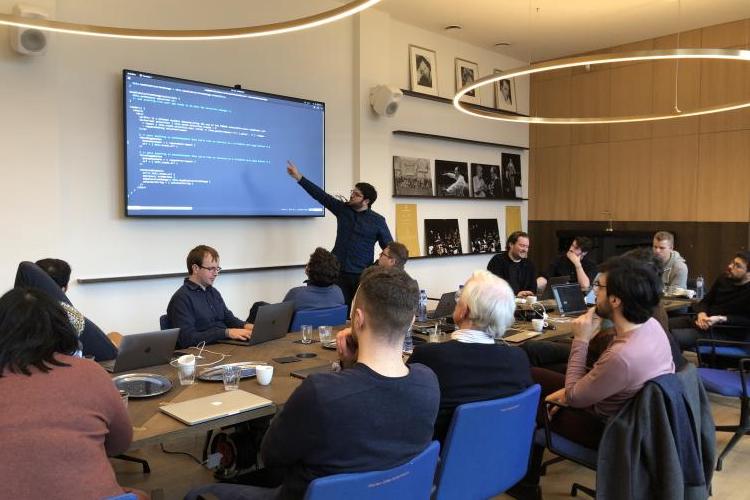The Royal Concertgebouw Orchestra and Videodock hosted a two day meetup (20-21 Jan 20) for all TROMPA developers and developing partners to demonstrate, discuss and decide on the most recent versions of the TROMPA software components.
Videodock presented the latest version of the TROMPA Multi-modal component, a toolkit that handles search and retrieval of data from the Contribution Environment to other applications. This enable user-facing applications to tap into the rich data that is stored within the shared Contributing Environment.
Breakthrough for TU Delft’s crowdsourcing engine
A warm applause was given to TU Delft after a first public demonstration of their Optical Music Recognition framework. The framework takes an orchestral score in PDF format and breaks it down into individual bars and measures. These snippets can then each be interpreted by a team of crowdsourcing workers or collaborators. The collective work result will then be recombined into an MEI file, the advanced music format that powers all TROMPA applications.
Together with the Crowdsourcing Campaign Manager, the Audio Annotation Component and the Score Edition component, these technologies will enable a structured process for the digitisation, annotation and use of digital musical scores in advanced user applications.
Privacy-first handling of private data
Conscious of data privacy, MDW’s David Weigl proposed to implement Tim Berners-Lee’s Solid as a way to handle user authentication and the storage of private data. Solid is a state-of-the-art open-source implementation of existing web technologies that gives individual users the ability to use their own domain as user authentication and to exercise full control over the storage and use of their personal data. UPF is considering setting up a Solid ‘pod’ server to facilitate the process for the TROMPA use-cases.
All released TROMPA components are now available on GitHub for download or contribution.
- Anmelden, um Kommentare verfassen zu können


